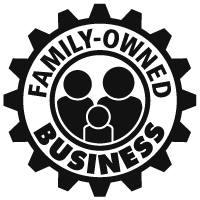“I had a long
talk with my old man yesterday” Uche mentioned
“Oh…really, what
about?” his bestie; Adaku enquired.
“You know the
young guy isn’t getting any younger, so he was telling me that it’s time I
joined the family business” Uche paused and before he could find his voice
again, Adaku interrupted--
“Uche, tell me you
aren’t considering it—what happens to your dream of being an oil worker?” Adaku
asked him dismayed.
fortONE.com
Uche stared into
space for a while and as if something eventually hit me…he blurted
“I studied
petrochemical engineering, I’m sure you know that and I’ve been looking for a job
in the oil sector now for years. True, my family is into manufacturing, but I
believe I can fit in somehow and effect the change I want” Uche concluded- -
even though he wasn’t too certain about what laid ahead of him.
Undoubtedly,
there are people who would rather stay jobless than join their family in
building any kind of business. This may be understood especially when issues of
mismanagement of funds, lack of structuring, over-familiarity etc rocks the
family business.
That said; there
are a couple of things you may want to ponder on when it comes to family-owned
businesses that have thrived.
Joining the
family business isn’t all bloom and gloom-- considering multinationals such as
Nike, Volkswagen, Samsung electronics, Foxconn, and Wal-mart that are
family-owned but have weathered the storm and doing great for themselves.
Also, it may
surprise you to know that the Chinese economy that is usually in the news as
one of the most improved economy—and have posed a major threat to the US over
the years thrive on businesses that are family-owned. According to Chinese official
statistics, the country has 40million private businesses— of which most are
owned by family; and it accounts for 60% of China’s GDP; which is a whopping
2/3rd of China’s total output.
Interesting
right? However, here are a couple of things you should know before making a
decision on whether venturing into family business is something that’s meant for
you or not.
bigtree
Pros and Cons of Family-owned BusinessesCons of family-owned BusinessesSuccession Issue
The Harvard Business
Review states that 70% of family-owned businesses fail or are acquired before
it is succeeded by the next generation. This is easy to believe considering
that the major threat to China’s economy right now isn’t the US or any other
world power but “succession”.
This is the major
challenge facing family-owned business—it’s possible that after committing so
much into building a multi-national, your kids may grow up and show a lack of
interest in furthering your legacy. When a challenge like this occur, in other
to keep the business running, outsiders are employed to oversee the
management—which often times, may not produce the same result that a family
would generate.
But this could
be curbed, by starting early to incorporate your kids into the business, making
them see the vision you have and how they could fit into it. Overtime, even
when they want to venture into other things, they know they are saddled with
the responsibility of promoting the family’s legacy.
Lack of Structure
Most family-owned
businesses suffer from lack of structuring and sometimes, even when there’s one
in place, it’s often difficult to implement without creating life-long enemies.
Imagine if you have to give instruction to an uncle or aunt —and they feel
insulted; bad blood could be brewing.
Also, a lot of excesses
are overlooked—simply because the bond of family is always considered before
the business; forgetting that if stiff sanctions aren’t put in place for
misbehaviours, a business can hardly survive.
Every measure
taken at enacting a policy would always culminate into village meetings— and in
a bid to avoid having a family member as an enemy for life, condoning excesses
becomes the order of the day. This could be really frustrating to any business
.
However, having
a strict policy of separating business from family is one way family-owned
businesses can rise above this challenge. It should be resounded that the
policy of the organization binds on everyone—including the CEO; this way they
know you mean business.
No excesses
should be pardoned, hence it becomes a norm. Everyone should be conformed to
obeying and taking instructions from superiors with strict sanctions on
insubordination. Over time, aunties and uncles will know that this isn’t
business as usual and will have no choice but fall in line.
In conclusion
There are
enormous benefits in building a family-owned business: working with people who
have the same vision of longevity, job security, minimal conflicts- seeing that
you already understand the personalities of most of your colleagues, secures your
kids future, etc.
Any family-owned
business that can curb the issue of in-subordination, lack of structure,
over-familiarity, and mismanagement is actually on its way to succeed.
So before you
say a “No” to joining your family build their business, you may want to consider
the benefits you stand to enjoy in the long run—if the right structures are put
in place.
Helping someone
else build his own business may devoid you of job security; plus not accord
your kids a place to work in the future—sure they have their lives; but how
about making them have options? Unless you are building your own business,
helping build your family business certainly accords you more advantages than
running around as an employee—just saying.
Nigeria as an
economy can thrive like China, if more people begin to consider building family
businesses. The public sector has too few jobs to offer our vast populace.
Family’s coming together to build businesses may just be the way out of this
quagmire we find ourselves as a nation.









Comments
Post a Comment